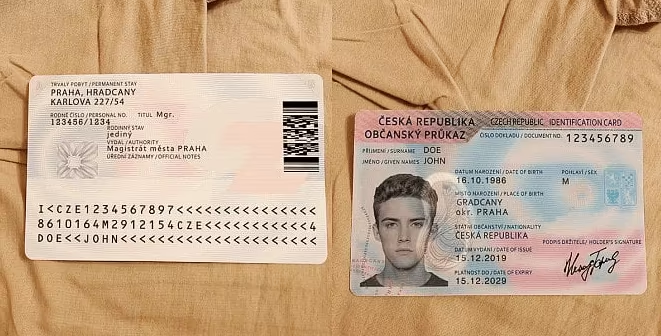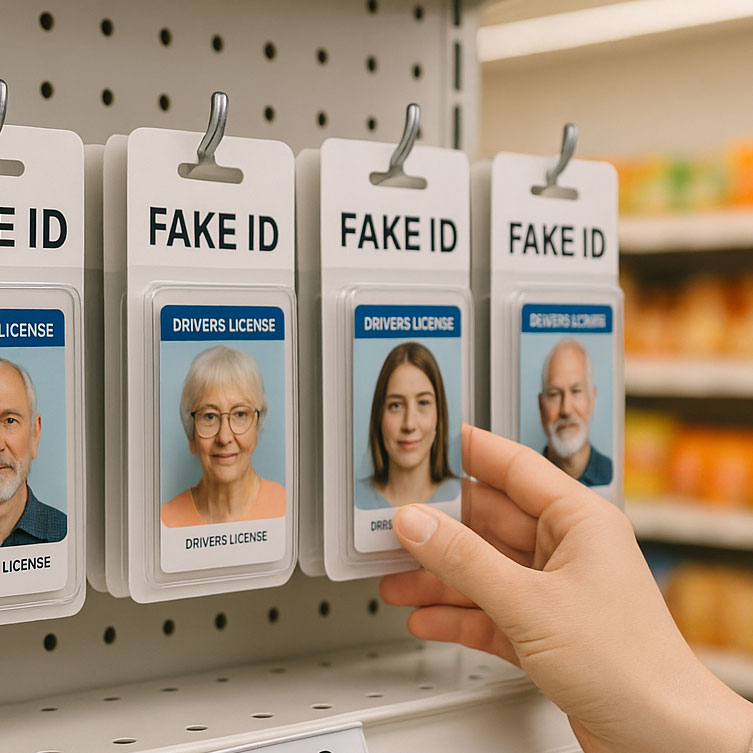Czech companies are still in need of developers, so they don't ask so many questions when hiring and are happy when they manage to get someone who looks like a capable and experienced "IT guy".
This is something some people try to exploit, greatly helped by modern artificial intelligence (AI) tools like Midjourney and Dall-E. However, there are also many other tools, such as Verif Tools, subtitled Fake Document Generator.
For about nine dollars you can easily order a fake photo of a Czech document. For example, the citizen may be lying on a table.
A chauffeur for all the money
Cases of document forgery and subsequent infiltration into Czech companies are cited by Petr Moroz, founder and head of SCAUT, a company that develops online tool for the so-called background check to screen candidates for jobs.
"We have a lot of cases like: We have a sales manager come on board and while he was still on probation, he disappeared with a credit card, a car, a computer, and we never saw him again," Moroz says.
One of his earliest and exemplary "cases" was one that didn't actually happen for him. The company made inquiries with SCAUT to check out the chauffeur who was supposed to drive the CEO's cars. Such a screening would have cost the unnamed chain about two and a half thousand crowns, which the chain's security officer refused after consideration.
"The chauffeur was also supposed to drive the children of the CEO in question and have the keys to his house, so we proposed a comprehensive screening, including foreclosures or insolvencies. After a couple of months, we met with the worker again and he told me that the chauffeur was worth CZK 8.5 million on two stolen seven-seater Bavarians," Moroz says, adding that after a retrospective check, the driver was found to have eighteen foreclosures.
Moroz cites a case from a betting company as another example of companies failing to adequately vet their potential employees. In both cases, the employees were never seen in person, and recruitment was done online.
"During our work with them, we also discovered a person who had created several fake profiles on the social networking site LinkedIn under which he was trying to respond to various job advertisements. He was confirming references to himself and actually managed to get into two companies. He was an Asian with a European passport, and in one company he was the head of development, and in the other he was a full-stack developer," Moroz says.
When the companies found out he had a fake identity, he stopped communicating with them and disappeared without another digital trace. He also withdrew his LinkedIn profiles. "But he could have had countless other such profiles, and since he has not been traced yet, he may continue his activities even now," Moroz says.
Moroz says the big problem also lies not just in direct recruitment but in referral through employment agencies. "This is because these candidates do not go to the end company through HR, but rather through the purchase of services," Moroz adds.
Other Czech companies have similar experiences. "We even found out that someone had a false education document that he forged himself, and we found out that one candidate had a dubious history in IT contracts," says Jan Klouda, vice president of Vodafone and a member of the Critical Infrastructure Association.
That's why the company is conducting more thorough background checks on job candidates.** "Within the Critical Infrastructure Association, this is a topic that everyone is addressing and taking seriously," Klouda adds.
Recruiters often do not verify information
Police crime statistics also show an increasing trend in falsifying public documents. They show that in the past five months of this year, the number of cases has already reached similar numbers to last year or the year before**.
According to the ACFE, such fraud costs companies an average of five per cent of their sales each year, which in the case of ŠKODA Auto, for example, is over one billion euros.




